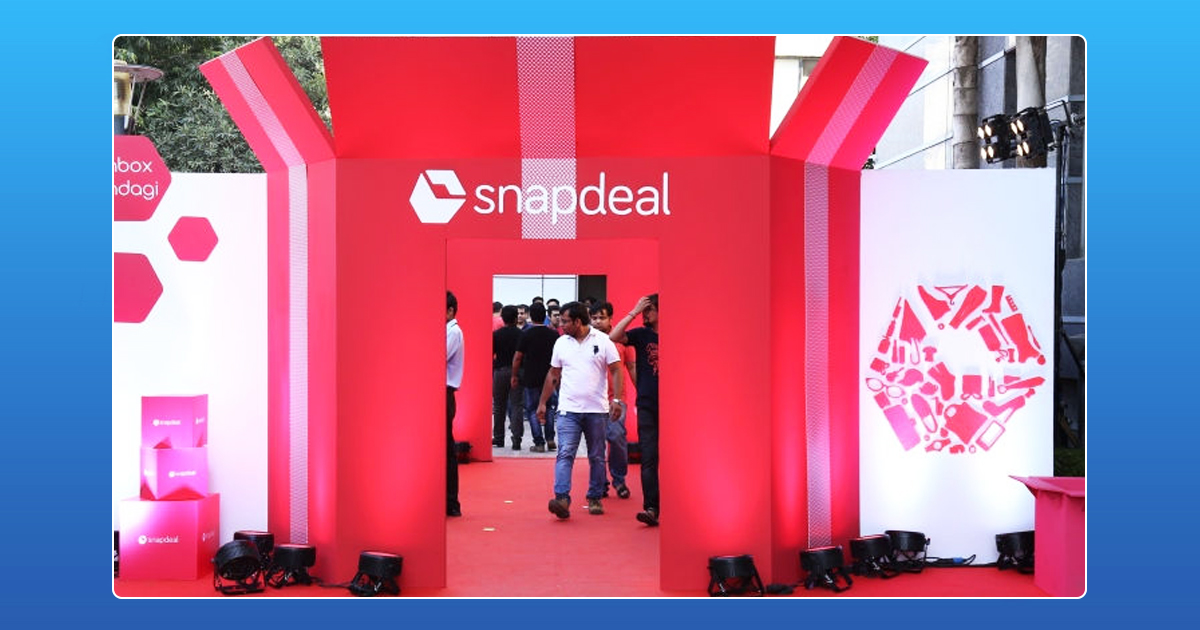Snapdeal recently decided to go their own independent route and declined the $ 900 million takeover offer from Flipkart. After the collapse of the merger, many senior level executives including the Vice President of Product Pradeep Desai, the Vice President of Engineering Viraj Chatterjee and the Head of IT Gaurav Gupta quit the ecommerce company. The company had laid off close to 600 employees earlier this year, across the ecommerce marketplace and its subsidiaries, FreeCharge and Vulcan Express.
While Snapdeal has successfully sold its online payments arm FreeCharge to Axis Bank, the future of the logistics arm Vulcan Express still hangs in the balance. The founders Kunal Bahl and Rohit Bansal, who have been hesitant about the Flipkart merger since the beginning, released a letter to the employees speaking about the future of Snapdeal. In the letter, the founders touched upon various issues including the ecommerce market in India and their journey as an independent entity. They even spoke about the extensive media coverage the deal received and the complexities it involved.
Both the cofounders firmly believe in the new direction, Snapdeal 2.0, the company must take and the laser focus required to become a ‘champion’ online market space. They aim to make around Rs. 150 crores gross profit in the next 12 months, with a tight control on costs and higher efficiency.
“Success is never final, failure is rarely fatal; it is the courage to continue that counts,” the letter added. The fate of this ecommerce company at present remains uncertain, despite the high hopes of the cofounders. One thing that remains certain is that the immediate sale of their logistics arm Vulcan Express, acquired in 2015, will deeply influence the growth of Snapdeal 2.0.
You can find the complete letter here –
Dear Team,
Over the last few months, our company has been engaged in strategic discussions with other players. A lot of time and effort has gone into the process from all participants in this exhausting process. The process has led to intense speculations and uncertainty for our team, partners and shareholders. And now it is time to finally put an end to this saga.
We will be continuing the Snapdeal journey as an independent company. As we have often discussed, the opportunity of e-commerce in India is immense, and the surface of this $200 Billion market has barely been scratched yet. We have a tremendous team, millions of loyal customers, hundreds of thousands of motivated sellers and a phenomenal platform that has been built with years of effort.
All the ingredients of success have always been there in our company. And after the last few months of tumultuousness, it is time to focus on the business and leverage all our strengths to progress towards our vision of building the best marketplace to connect buyers to sellers in India.
The good question to ask is why are we moving down an independent path, when so much effort went into determining a strategic combination. There are a few reasons for this, which go beyond the fact that the deal being contemplated was incredibly complex to execute as reported extensively by the media.
Firstly, there isn’t going to be one successful model for e-commerce in India. In every market, there are multiple successful e-commerce businesses, and as long as one’s strategy is differentiated and has a clear path to success, there is a great company that can be built. We firmly believe in our new direction – Snapdeal 2.0 – part of which is a laser focus on being a champion for all sellers in India, enabling anyone to setup a store online in a few minutes and focusing on providing large selection of products at great prices to consumers.
Secondly, we have made tremendous progress towards this new path over the last few months and are already profitable at an gross profit (a.k.a. net margin) level, with clear visibility to making upwards of Rs 150 Crores in gross profit in the next 12 months.
Finally, with the ongoing streamlining of costs and sale of some of our assets, such as Freecharge, we are financially self sufficient as a company and don’t need to raise additional capital to reach profitability. Needless to say, we will need to keep a tight control on our costs and work towards becoming a hyper efficient culture delivering profitable growth, month on month.
Success is never final, failure is rarely fatal; it is the courage to continue that counts. Let’s work together to make Snapdeal 2.0 a super success!
Thanks!
Kunal & Rohit

